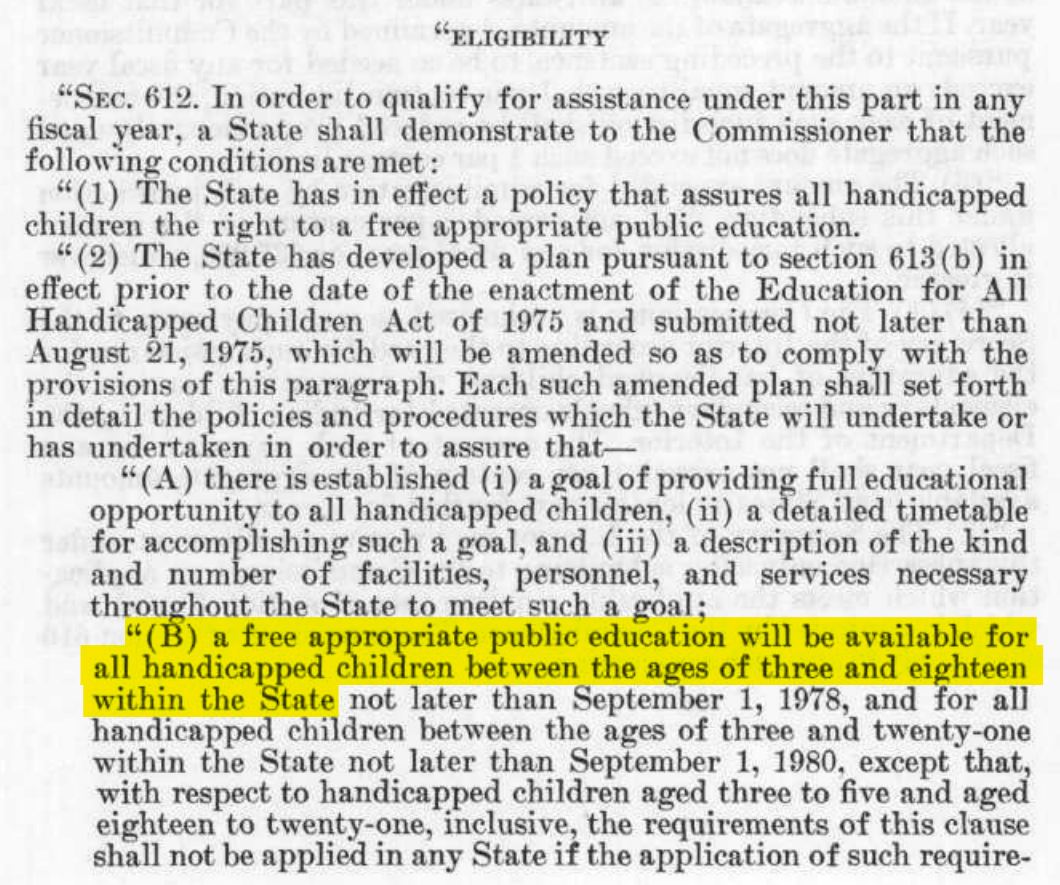"More recently the Federal cases of Pennsylvania Association for Retarded Children against Pennsylvania, and Mills against Board of Education of the District of Columbia have been decided. These Court rulings guarantee the right to free publicly supported education for handicapped children and have resulted in similar court action in 27 States throughout the Nation."
~ Senate Congressional Records, June 18, 1975
PARC v. Pennsylvania:
Pioneering the Right to Education for Children with Cognitive Impairments
Legacy
Legal Impact
In addition to the immediate ramifications of the PARC v. Pennsylvania settlement, the case set legal precedent for subsequent court cases challenging the exclusion of children with both physical and cognitive impairments from publicly funded educational programs.
These cases extended the legal impact of the PARC decision beyond the state of Pennsylvania and developmental disabilities.
"As further support for its conclusion, the majority opinion turns to Pennsylvania Assn. for Retarded Children v. Commonwealth, 334 F. Supp. 1257 (ED Pa.1971), 343 F. Supp. 279 (1972) (PARC)"
~ Supreme Court Case Board of Education v. Rowley, Majority Opinion, 1982
Education for All Handicapped Children Act

Public Law 94-142, The Education for All Handicapped Children Act: November 29, 1975
In 1975, as a result of the growing push for equal education, pioneered by PARC v. Pennsylvania, and the legal precedent set by the PARC v. Pennsylvania decision, Congress passed the Education for all Handicapped Children Act (EAHCA).
The EAHCA was the first national piece of legislation to mandate that all school districts provide a free appropriate public education (FAPE) in the least restrictive environment (LRE) to all cognitively impaired and physically disabled children in the United States of America.
"My son, Sonny Weicker, has been educated under [the EAHCA]"
~ Senator Lowell Weicker, 1990
In 1990, the EAHCA was renamed the Individuals with Disabilities Education Act (IDEA).
In the 2020-2021 school year alone, 7.5 million students were educated under the IDEA, representing 15% of the total student population.
As a result of PARC v. Pennsylvania's landmark decision, all children, regardless of ability, now have the right to a free appropriate public education under the law.
Caden and Marcus, two students receiving a FAPE under the IDEA, speak about how school has personally impacted them: Courtesy of Knights of Columbus, 2018